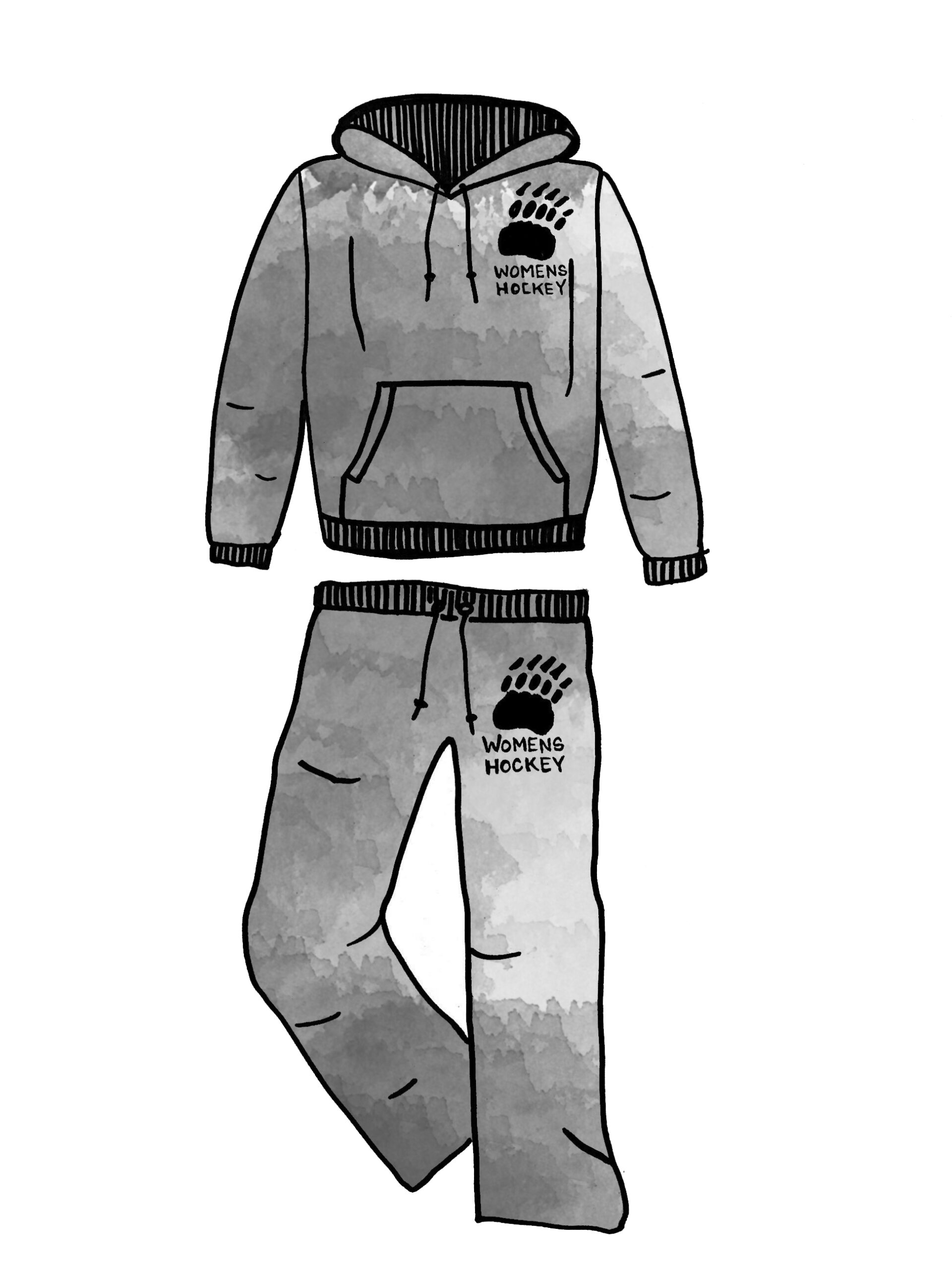Family by choice: embracing non-heteronormativity in athletics
April 2, 2020
Upon first arrival at Bowdoin, finding a group can be tough, especially when you’re just getting to know yourself. However, first-year athletes are tied to a group the second they set foot on campus: their team. For the majority of student-athletes, this is the family they keep for the next four years, sometimes even when they decide to move on from athletics.
Though she has been playing hockey since she was four, due to an accumulation of injuries, Emma Adrain ’21 decided that the 2019-2020 hockey season was her last. Even so, Adrain said she is grateful to have been part of the women’s hockey team—of that family.
As a student-athlete at Bowdoin, you can’t choose your athletic family. If you choose to be on a team for the next four years, you have to live with its members, despite your differences. Adrain recalled these tensions on her club teams growing up.
“I remember at a sleepover with my club hockey team in middle school, the girls were trash-talking lesbian women. It hurt even more because I have two moms. The whole conversation, I kept thinking—what if I were gay? I later came out to my parents, at the beginning of high school,” remembered Adrain. “Looking back now, I keep thinking—how many girls at that sleepover were gay and trash-talked gay women just because everyone else was?”
For the most part, Adrain said she doesn’t feel hyperaware of her sexuality on the ice or in the locker room at Bowdoin. However, heteronormativity is ingrained within the social aspect of being a female athlete, and this is where Adrian is most acutely aware of her sexuality.
“Once a teammate asked, ‘what am I supposed to do at a mixer with only a girls team? What does that leave me?’ I told her when we have a mixer exclusively with a men’s team, that’s exactly how I feel! After I said that, she definitely seemed to get it. Our captains made an effort to mix with other girls teams, but usually a boys team would show up, too,” said Adrain.
Adrain also notices a wide variety of comfort levels of being out at Bowdoin. Every year, Bowdoin’s Sexuality, Women and Gender Center (SWAG) offers OUTPeer and OUTAlly training that provides Bowdoin students with information about how to cultivate a campus environment that is safe for members of all genders and sexualities. Being listed as an OUTAlly highlights someone who is straight but is open to discussing sexuality and providing support in any way they can. OUTPeers provide the same support from the standpoint of someone who identifies as openly queer at Bowdoin. Adrian said she is “one of a handful” of OUTPeers on a Bowdoin varsity team.
“That doesn’t mean that other teams don’t have members that aren’t doing the same training or who aren’t out on their teams,” she said. “There are many reasons why someone might not want to be out, and that’s okay. Still, the lack of OUTPeers on that list, especially from the wider athletic community, shows there’s still a little bit fear of being out at Bowdoin. It takes a lot of confidence to be out on this campus.”
Adrain is proud to be a resource for questioning students.
“It’s statistically impossible that every member of every team is straight,” Adrain laughed, “People have come out to me and asked me not to tell anyone because they aren’t ready. They aren’t ready to know themselves like that and that’s okay. But Bowdoin culture lends itself to not-knowing. When almost everything that surrounds you is straight, you aren’t pushed to search for that knowledge or self-discovery on your own.”
Despite Bowdoin teams’ progress in the inclusion of varying sexualities, the majority aren’t there yet.
“Most people on a team who have come out to me aren’t worried in the moment about what their parents would say, just because they’re not around them as often. They’re worried about what their teams would say. When you’re an athlete, you spend all of your time with your team—people who are supposed to be your family. As a person questioning your sexuality who is not tied to an athletic team, you might have a chance to reevaluate your friends if they are uncomfortable with who you are. You can’t reevaluate who your team is. If you come out and your team doesn’t accept you unconditionally, does that mean you can’t play your sport anymore? It shouldn’t. But it doesn’t mean there wouldn’t be fear or anxiety every time you’re in the same room.”
Adrain’s experience on the women’s hockey team has been overwhelmingly positive, but she knows that not everyone is lucky enough to have the family she does. For this to be true of all teams, she said, “it would take a lot—a culture shift.”
You can’t pick your teammates when you come to Bowdoin. But like a family, you can compromise and you can listen to carve out a space for everyone on the team. These families can be a point of origin for the culture shift that Adrain thinks could clear the obstacles that all queer students, non-athlete and athlete alike, encounter. For many of the hurdles Adrain highlights are not exclusively the job of the athletic community to fix, but rather the job of the entire Bowdoin family to remedy.


Comments
Before submitting a comment, please review our comment policy. Some key points from the policy: